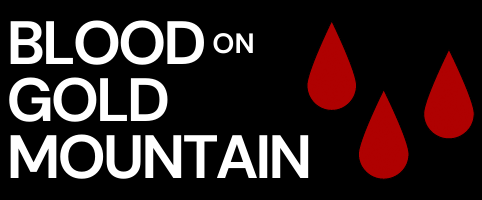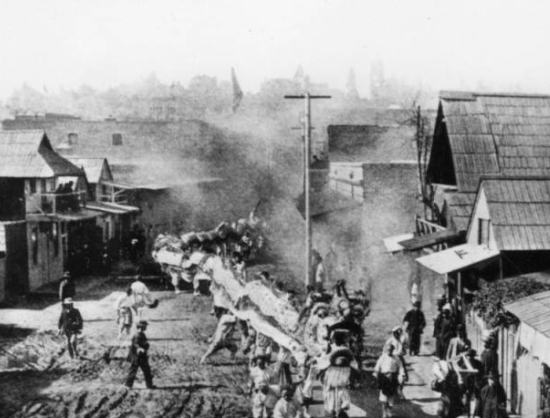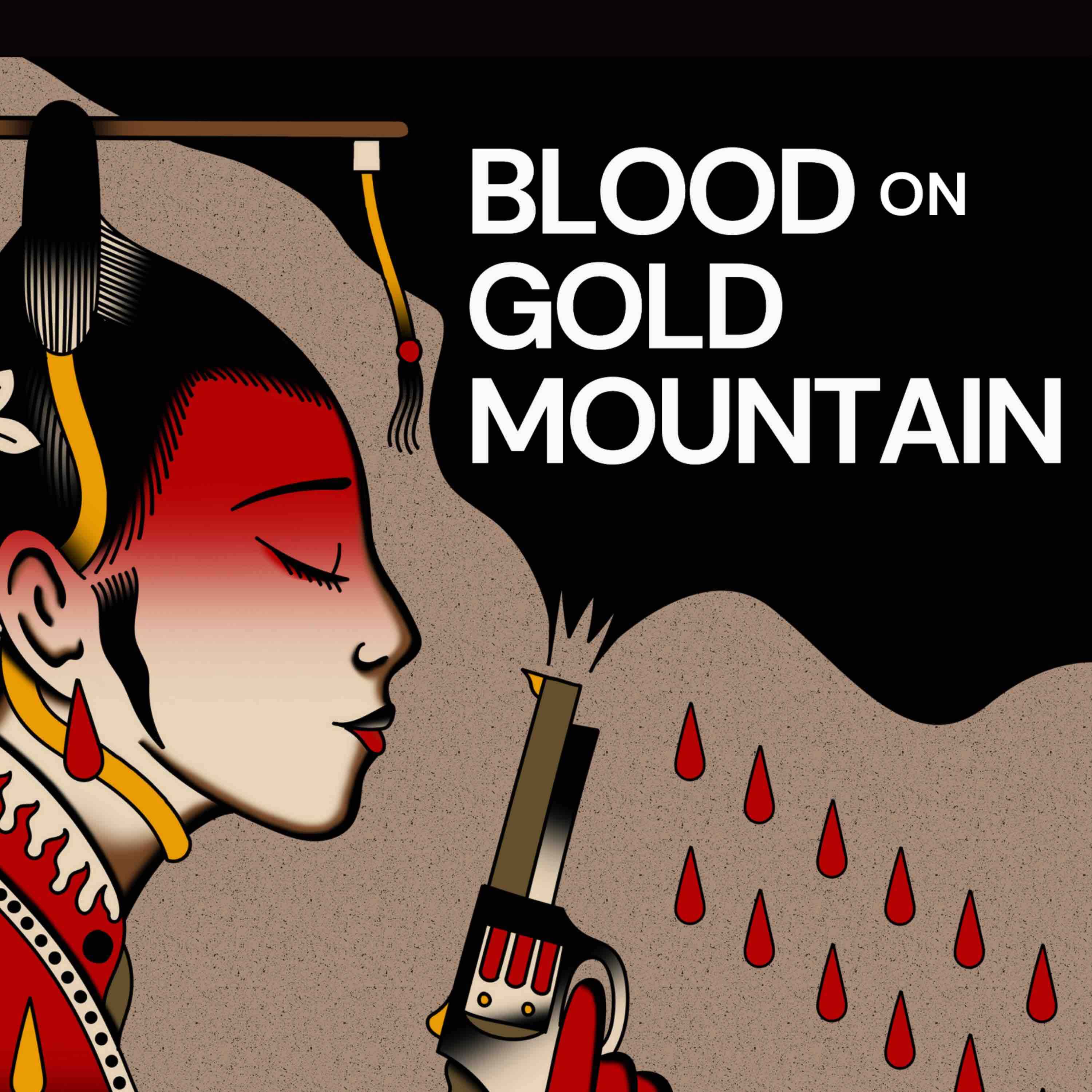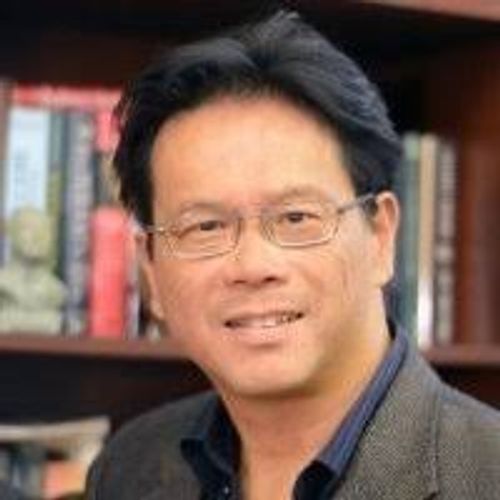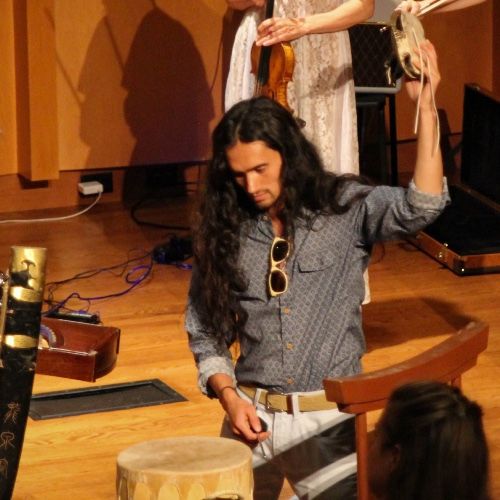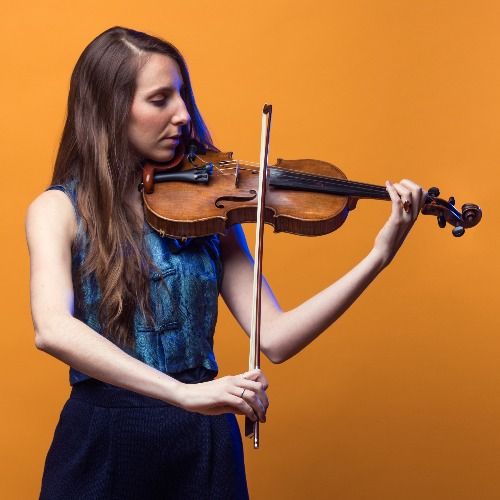Outlaws
This episode introduces some key players in the story of the Chinatown Massacre, and gives some background about the social and political conditions for Chinese Immigrants in Wild-West California.
Yut Ho and Ah Choy are based on historical figures. For more information about them, a great resource to check out is “The Chinatown War,” by Scott Zesch, who has collected and attempted to decode a number of primary sources contemporary with the events in this story.
Accounts of the lives of Chinese miners are scarce and unreliable. The closest thing we have to a primary source (in English) is this stunningly racist essay by author Henry Kitteridge Norton, published in 1924 and transcribed by the San Francisco Museum:
This and other similar sources supplied the material on the lives of Chinese miners. Historically, no murders of Whites by Chinese immigrants were recorded...until the day of the massacre, as we shall see. However, that doesn’t mean it didn’t happen.
A wonderful fictional account of Chinese miners can be found in the Ken Liu story “All The Flavors,” published in “The Paper Menagerie and Other Stories” (2016) and available online for free.
Prostitution was actually much less prevalent in Chinatowns across California than politicians made it out to be in the late 1800’s. However, it was a constant danger for those few young women who made it through immigration. The old woman from the Huiguan (“benevolent association” in Cantonese) is fictional, but I have seen the Mahjong Halls of San Francisco Chinatown, and received the brutal solicitations for prostitution that hound young Asians of many genders across America, to this day.
The Characters are presented as speaking in Cantonese, rendered as an accessible, 20th-century English familiar to the listening public. So much for Historical Verisimilitude. Here is a basic lexicon for transliterated terms used in the story:
Gwailo: Translating as something like “ghost” or “foreign ghost,” it refers to western would-be-colonizers in China. Also used in the US, by such figures as that APB-busting superhero, Ghostface Killa.
Mei: a common Chinese diminutive for younger sister
Huiguan: A communal association designed to help get new immigrants on their feet. Often possessed of premises; a kind of outside-the-law town hall.
If you have questions, thoughts, your own family stories, or historical context to share, please send us a message at @bloodongoldmountain on Facebook or Instagram.
-----
Blood on Gold Mountain is brought to you by The Holmes Performing Arts Fund of The Claremont Colleges, The Pacific Basin Institute of Pomona College, The Office of Public Events and Community Programs at Scripps College, The Scripps College Music Department, and The Entrepreneurial Musicianship Department at The New England Conservatory.
Blood on Gold Mountain was written and produced by Yan-Jie Micah Huang, narrated by Hao Huang, introduced by Emma Gies, and features music composed by Micah Huang and performed by Micah Huang and Emma Gies. A special thanks to Sheila Kolesaire for her critical PR guidance and to Evo Terra from Simpler Media Productions for his immense expertise and support.
-----
More details at bloodongoldmountain.com
Transcript
Gold was the color of the brilliant sunshine, and gold too the tall grass that covered the softly swelling hills like fur on the flanks of some great beast, and rippled in the breeze. The morning had been misty, but now it was close to noon and the sky was as blue as the eyes in a peacock’s tail.
The valley was vast, with row upon row of tawney tree-studded hills stretching for miles on either side before mounting steeply one on top of the other at the feet of two enormous ridges. Up on those high slopes the gold gave way to the dark jade of live-oak gullies and then, higher still, the bristling blue-black of pine forest.
At the foot of the Western ridge there was a road, and on that road there was a stage-coach drawn by two horses, and containing a driver who dozed lightly beneath his enormous straw hat, a modest quantity of luggage, packed into cases, and two passengers.
One of the passengers was a woman in a comfortable rather weather beaten tunic of rough spun cotton. Her trousers and shoes were of the same stuff, but she wore them with the kind of easy settled grace that made her seem strong and expansive despite her fresh face and small frame. Her name was Yut-Ho, and she was peeling an orange with a bowie knife, carefully slicing away the fragrant skin in one long, thin strip as she listened to the other passenger who was speaking.
“If we keep up this pace, we should be there before nightfall, or at least before the moon clears that ridge. It will be a nice break; Indian Camp is no palace, but we can expect a room that fits all three of us, with straw mattresses and something hot to eat. Anyway, none of us will have to stand watch. It’s pretty quiet out there in Indian Camp.”
The young man laughed, flashing a wide smile that twinkled with gold. He was older than the young lady, 6 years older to be precise, which meant that he was all of 25. He was tall and rather thin, with very dark skin, and a long shiny scar that ran down the left side of his face. His shirt was black cotton, his trousers of tight black sail cloth, and his boots, belt, and jacket were all of the same thick, dusky leather. He wore his shoulder-length hair loose. At his hip hung a very clean looking revolver in a leather holster, and on the peg beside him hung a wide-brimmed black felt hat and a long, straight sword with a lion’s head carved into the pommel.
His name was Ah-Choy, and he was Yut-Ho’s brother.
Yut-Ho used the tip of her knife to pluck the end of the long strip of orange peel from the convergence of the fruit’s nine translucent lobes. On the very end of the strip was a tiny green floret– the ghost of the orange blossom the fruit had once been. She sighed a little, and then tossed the ribbon of peel out of the open window and, separating the orange into slightly uneven halves, tossed the smaller one to Ah-Choy.
“So,” she said, popping an orange section into her mouth. “What have you really been doing here for the last five years?”
“What, you don’t believe what I wrote to our parents?” Ah-Choy tried his best to look indignant. “How could you question my filial piety?”
Yut-Ho rolled her eyes. “If there was gold lying around everywhere, I’m pretty sure that all those young men in San Francisco would be lounging around in opium dens and whore houses instead of sleeping 10 to a room and washing gwailo laundry all day and night. Besides, what kind of miner needs swords and guns within reach at all times? Seems to me you’ve been up to your old tricks again, but you had to cook up a big crock of respectable stinky tofu for Ma and Dad so they’d accept the money. So, I’m not really questioning your filial piety. Rather the opposite, in fact.” Her smile was quick and bright, like the flash of a trout in a clear stream. “Your stinky tofu money kept us alive.”
Ah-Choy smiled back, but his smile was slow and sad. “For a while, at least.”
Yut-Ho shook her head, as if to shake off a cloud of smoke. “It kept them alive as long as anything could,” she said, “and I’m still alive, so stop acting tragic and tell me, because I really am curious to know what you’ve been doing all these years. Start at the beginning, you know I hate it when you tell stories all out of order.”
So, Yut-Ho leaned back and made herself comfortable against the hard wooden bench, and Ah-Choy took a deep breath, glanced out the window at the glorious California sky, and began.
“Yeah, I really did try mining it first. There was a team of Chinese miners getting outfitted when my ship came in, and I ran into some of them by chance. They were all good guys, legitimate, you know? But they accepted me and I ended up joining them on their expedition.”
“We left a few days later by water and landed at Vallejo, which was two days to sail to the East. The San Francisco Bay is huge, like an ocean. After that it was hard work. We had a lot of heavy equipment and very few pack animals, so we had to muscle up. I remember the Forman, a big old man who looked like Guan Gong carrying a sluice the size of a tree trunk on his shoulder. Anyway, we would find mining camps, which the Gwailo had abandoned, set up, and coax the remaining gold from the sand with water, muscle, and patience.”
“It was pretty good work for a while. The Gwailo are lazy. And they hate hard work and are always trying to avoid responsibility. Also, most of them drink too much and their cooking is awful. So only the biggest heartiest ones can keep up their strength. All this meant that they left plenty of gold in the ground, and we hauled our equipment from claim to claim and took it out. Sze Yup men have never been afraid of hard work. Oh, stop. It's true! Most Sze Yup men, and women… you're right.”
“Anyway, I did this for most of the first year. We worked hard, moved fast and got a lot of gold for poor miners. More gold than we had expected. Though, not as much as we'd been hoping for. We were very lucky to have a handful of good cooks on our team, as well as a blacksmith and most important of all the traditional doctor. This last one was very important because we couldn't afford to have anyone stay wounded or sick for long. He spent his days, roaming the Hills hunting for herbs and mushrooms that would heal us and keep up our strength. Then at night, he would take out his scratchy old Erhu, and we would sing songs about home, the gods, and women.”
“It was winter, getting cold when something happened that made me have to leave camp. We were working in an old claim, somewhere up in the hills, close to Sonoma, and we struck gold. More gold than we had ever found before. And it kept coming. A couple of the men went into town and bought a pig, plus some Gwailo whiskey so that we could celebrate our good fortune. After all, we had been eating nothing but rice with wild greens and whatever fish or game we could catch for almost a year. Sometimes the doctor would even make us eat mashed acorns when vegetables were scarce. Anyway, that pig was like a gift from heaven. I don't know if I ever tasted anything so good.”
The next day we were working off the hangover when the Guailo arrived. There were about 10 of them to 14 of us. And unlike us, they had guns. It was bad business. They ran us off the claim, pushing us down the Sandy bank by shooting at our feet. We had to leave everything: our equipment and tools, clothes, and belongings, which we didn't have on our back.”
“The night before we had been rich. Some of the men were even talking about taking the money down to San Francisco and then home so they could see their wives and children again. Now we had nothing but the food in our bellies and a handful of Gwailo bullets kicking up sand at our heels”
“That night, we took shelter in a hollow beneath a great big outcropping of rock. A few of the men had gold or a bit of money on them. But it wasn't nearly enough to replace all the stolen equipment.”
“The situation was made worse by two things. First of all, the claim jumpers would almost certainly have told the Gwailo sheriff that there was a group of rogue Chinaman up in the Hills, posing an imminent threat to the town. We had heard stories about this kind of thing happening to other crews. You see the Chinese in this country live outside the law. We can't speak to a magistrate unless it's to accuse another Chinamen of a crime. That means that any Gwailo can bring down the law on us at any time, and the claim jumpers would certainly prefer to enlist the Sheriff's help to run us out of town.”
“On top of that each Chinese miner has to pay a tax of 20 American dollars every month. Or the sheriff will come drag him off to jail. In gold that translates to about five American grams, which is about a quarter of what each of us had been making before the robbery. Now, with all of our equipment and a fair bit of our gold gone, none of us could afford to pay the tax. Our career as miners was functionally over. We also had no food and no way of getting any with the town on alert for rogue Chinaman. All our traps and fishing gear were still at camp.”
“While the other men were talking, I slipped away from the fire and went for a walk. We all knew these hills pretty well, and I didn't have any trouble in the dark. You see, I don't like being chased around by Gwailo like a dog. And unlike my companions, who were all honest, hardworking men, I had plenty of experience living outside the law as you well know. I slipped silently through the trees using the light body technique Gong Gong taught us for catching pheasants, remember? My plan was to slip into camp and grab the big, 50- pound sack of rice from the place where we had stashed it...and it almost worked. I got to camp and the claim jumpers were all down by the river drinking whiskey and eating the rest of our pig! The rice was up on a little hill, close to the tree line in a sort of small cave we had chiseled out a big piece of sandstone. We had rolled a Boulder in front of it, so that raccoons or other small hunting creatures wouldn't be able to make holes in the sack. Darkness and the drunken god were on my side and I managed to roll away the Boulder without incident, but then I froze. One of the Gwailo had gotten up from their fire and was coming right toward me, stumbling as he walked. He was drunk, half blind from the firelight, and evidently looking for a place to piss. I suppose the little hillock struck his fancy because he came right up to my hiding place. I had no time to run. He would have seen or heard movement and sounded the alarm.”
“And anyway, I needed that rice! I don't know if he saw me at the last moment or just a shadow in the dark. But I saw his eyes widen, and that was it. I found that my knife, that knife you're playing with now in fact, was in my hand. So, I grabbed him by the beard and cut his throat before he could make a noise. It was easy, like slaughtering a pig. He pissed himself as he bled out. I smelled it as I quietly stripped the revolver and gun- belt from his waist and fastened it around my own. Then I grabbed the rice along with a little tinpot we always kept with it, and was gone.”
“When I got back to the place where my friends were hiding, most of the men had gone to sleep in a pile around the fire, like orphans. The nights can get cold up there in the hills, and all of their bedding in blankets were down at the camp. Only two men were still awake, talking quietly over the crackle and splutter of the hastily-cut greenwood fire: the forman and the doctor. I came right up to them. I must've looked funny, rather alarming appearing as I did out of nowhere, wild haired and shivering, splattered with blood, and cradling the sack of rice like it was my first born child. They did seem mildly surprised, but neither of them laughed.”
“I gave them the rice and told them what had happened. The likelihood was that the claim jumpers would discover their dead companion in the morning and start scouring the woods, enlisting the sheriff's help by midday. The whole town would be up in arms by nightfall, with riders out on the roads to Napa and Petaluma at least.”
“They would have to wake the men and move out immediately, but where? The foreman told me that their best hope was to make the 50 mile journey to Sacramento where they could lose themselves in the crowds. And in all likelihood we would find work. There were rumors that some big Gwailo railroad company was hiring workers for $20 a month, which was as good as anyone was likely to get now that our mining equipment was gone.”
“I told the four men that it was a good plan and urged him to stay off the roads. Keep to the Hills and forests I told him. If you go directly East, you should be able to make it over the ridges and come out north of Bucktown in about two weeks. There should be plenty of water this season though it will be cold. The Napa Valley is the risky part. You'll have to cross it in a single night and get well up into the hills on the other side before you light a fire. Bucktown will be on alert, so careful when you make camp, but Davis should be all right. There will be too many Chinamen there for anyone to point the finger at you. Besides, I’ll have drawn the heat in the opposite direction.”
“Then I told them my plan because I had resolved not to go with them and work for the Gwailo as a slave and a coolie in all but name. I was finished with this life of hard toil where everything I had, could be stripped away by any Gwailo who could afford a six shooter. That's right little sister... I was going back to my old trade, more lucrative and dignified than the life of a foreign miner. I was going back to a life of crime and of banditry.”
Yut-Ho was frowning down at the bowie knife. Its blade was longer than her hand and nearly as wide as her narrow wrist.
“The old woman at the huiguan said it was a terrible crime to kill the Gwailo,” she said. Ah Choy made a derisive noise.
“She said it would bring down terrible misfortune on the Chinese in this country if we kill the Gwailo,” Yut-Ho insisted.
Ah-Choy sighed. “Do you know how that old woman makes her money little sister?” he asked, placing a slight emphasis on little sister in a way that Yut-Ho found most irritating.
“No,” she snapped.
“Of course not. You know, why? Cause she hangs around the Huiguan playing Mahjong until she sees a girl or group of girls who she can tell have just come fresh off the boat, all wide-eyed and gaping like so many mackerel still smelling of the sea.Then she sidles up to them and starts talking to them about how dangerous it is here, how terrible and the mighty the Gwailo are, and how, what they need more than anything, more than money, or new clothes or even food, is friends. ‘We Chinese women need to stick together.’ Does that sound familiar?”
“Yes,” said Yut-Ho, outwardly sullen, but stifling an inward giggle. The old woman's actual words had been, ‘We Chinese women need to stick together because this country turns men into horses and pigs.’ Ah-Choy truly did seem a little more horse-like now than before, with his sun-dark skin and that wild mane.
“Then,” said Ah-Choy, eyes flashing like an unbroken stallion, “Once she's won their trust she invites them to come stay with her, since she runs a house where girls can be safe and stick together while they get on their feet. There's food at the house and a change of clothes. And a bunch of girls who will show you the ropes of how to make it in this strange country. All this can be yours as long as you're not afraid of a little bit of hard work. Is that what you said?”
Yut-Ho tossed her head and snorted. Perhaps the transformative California air had an effect on women as well. “Perhaps that's what she would have said, if you hadn't interrupted and started jabbering at her in Gwailo. But since you did, and since I don’t speak Gwailo, I guess I’ll never know what she said before she left. Probably something like, ‘get away from me, you sword-toting giant.’”
“I'll tell you what you said.” One of Ah-Choy’s eyebrows had risen up so high it was mostly concealed behind a lock of hair that lay across his forehead. He no longer looked like a horse. More like a gigantic black vulture.
“She was offering me 150 American dollars. A pretty good price.”
“For what,” said Yut-Ho, not bothering to conceal the skeptical disdain in her voice.
“For you,” said Ah-Choy.
There was a silence.
Outside the window a hawk was tracing slow loops of ephemeral calligraphy on the perfectly cloudless sky. The wheels of the carriage growled steadily against the hard packed road. The wind whispered soft and syllabant through the tall grass and Ah-Choy sat back against the hardwood wall without saying a word, but Yut-Ho understood.
This is why, said Ah-Choy’s silence. This is why we are on the road to Los Angeles. This is why I found you a rich husband who could pay for your passage without demanding a heavy dowry in return. Because our Homeland is at war, and people are starving in the streets. Because our villages burned, our parents are dead, and our family scattered over the world like drops of blood from a spurting wound. Because fortune has cast us upon the shores of a barbarous nation whose people hold us in disdain. Because just as I will not allow them to make me a slave, I will not allow them to make you a whore. Because I have chosen to live by the sword and cannot keep you with me. Because I hope that you might be happy, make a family, bear children who will remember us and not let our ghosts go hungry. Because life is not fair, for women, for Chinamen, for anyone. Because I want to do my best for you. Because this is the best that I can do. Because you are all I have left. Because I love you.
All these things Yut-Ho understood from her brother's silence and she felt ashamed, and proud, and determined that since so many had suffered so much to save her from her parents’ fate and give her a better life, she would have a life that was better than anything, any of them could have hoped for, no matter what the cost.
Emma:If you enjoyed the show, please subscribe, leave us a review, and follow us on Instagram at Blood On Gold Mountain. The next episode will be released on Wednesday April 7. Blood on Gold Mountain is brought to you by The Holmes Performing Arts Fund of The Claremont Colleges, The Pacific Basin Institute of Pomona College, The Public Events Office at Scripps College, The Scripps College Music Department, and The Entrepreneurial Musicianship Department at The New England Conservatory. It is hosted by Hao Huang, Micah Huang, and Emma Gies, featuring original music by Micah Huang and The Flower Pistils. A special thanks to Evo Terra from Simpler Media Productions for his expertise and support. Thanks for listening and see you next time.
